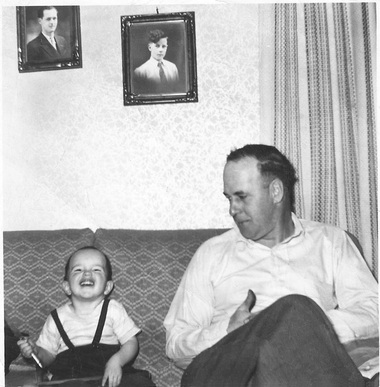As the search progresses it can start to paint a picture of the person you are researching with new tones and added complexities. Before starting such an
endeavour, remember that not all surprises are pleasant ones, and to only go so far as you are sure you are comfortable. Also, respect your peers - finding a
surprising revelation may not be something others are prepared to share.
The path of discovery may lead you to friends and acquaintances and family who were contemporaries of the person you are researching. It is important to always respect the wishes of those you speak to for privacy. Accept "no" for an answer if someone is hesitant or unwilling to speak with you.
If someone is willing to speak with you, prepare ahead of time. Write down the questions you want to ask of time, but be prepared to follow wherever the conversation may take you. Take notes rather than relying on your memory. If you have an audio recorder and your subject has agreed to and is comfortable with its use, doing so can may be the route you want to take. Also consider whether to repeat interviews with the same subject. Often times, some nuance or new memory will come to the surface.
Library and Archives Canada (LAC) is one of the best sources of information about Canadian servicemen and women. The archives search engine is located
online. LAC can provide access to service records for Canadian servicemen and women, though rules governing privacy exist.
Second World War Service Files for Canadian Armed Forces War Dead are available. The 44,093 who lost their lives are commemorated at the Books of Remembrance, the Canadian Virtual War Memorial, and the Commonwealth War Graves Commission Debt of Honour Register.
LAC holds more than 7,800 war diaries of Canadian units from the 1940s (a general search of the holdings for war diaries can be found here). Many are available for loan on microfilm. The extensive photographic holdings can also be searched.
endeavour, remember that not all surprises are pleasant ones, and to only go so far as you are sure you are comfortable. Also, respect your peers - finding a
surprising revelation may not be something others are prepared to share.
The path of discovery may lead you to friends and acquaintances and family who were contemporaries of the person you are researching. It is important to always respect the wishes of those you speak to for privacy. Accept "no" for an answer if someone is hesitant or unwilling to speak with you.
If someone is willing to speak with you, prepare ahead of time. Write down the questions you want to ask of time, but be prepared to follow wherever the conversation may take you. Take notes rather than relying on your memory. If you have an audio recorder and your subject has agreed to and is comfortable with its use, doing so can may be the route you want to take. Also consider whether to repeat interviews with the same subject. Often times, some nuance or new memory will come to the surface.
Library and Archives Canada (LAC) is one of the best sources of information about Canadian servicemen and women. The archives search engine is located
online. LAC can provide access to service records for Canadian servicemen and women, though rules governing privacy exist.
Second World War Service Files for Canadian Armed Forces War Dead are available. The 44,093 who lost their lives are commemorated at the Books of Remembrance, the Canadian Virtual War Memorial, and the Commonwealth War Graves Commission Debt of Honour Register.
LAC holds more than 7,800 war diaries of Canadian units from the 1940s (a general search of the holdings for war diaries can be found here). Many are available for loan on microfilm. The extensive photographic holdings can also be searched.

